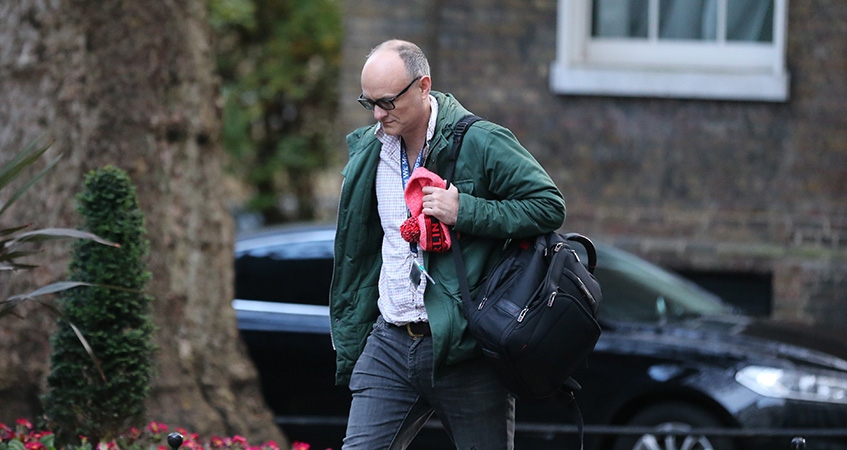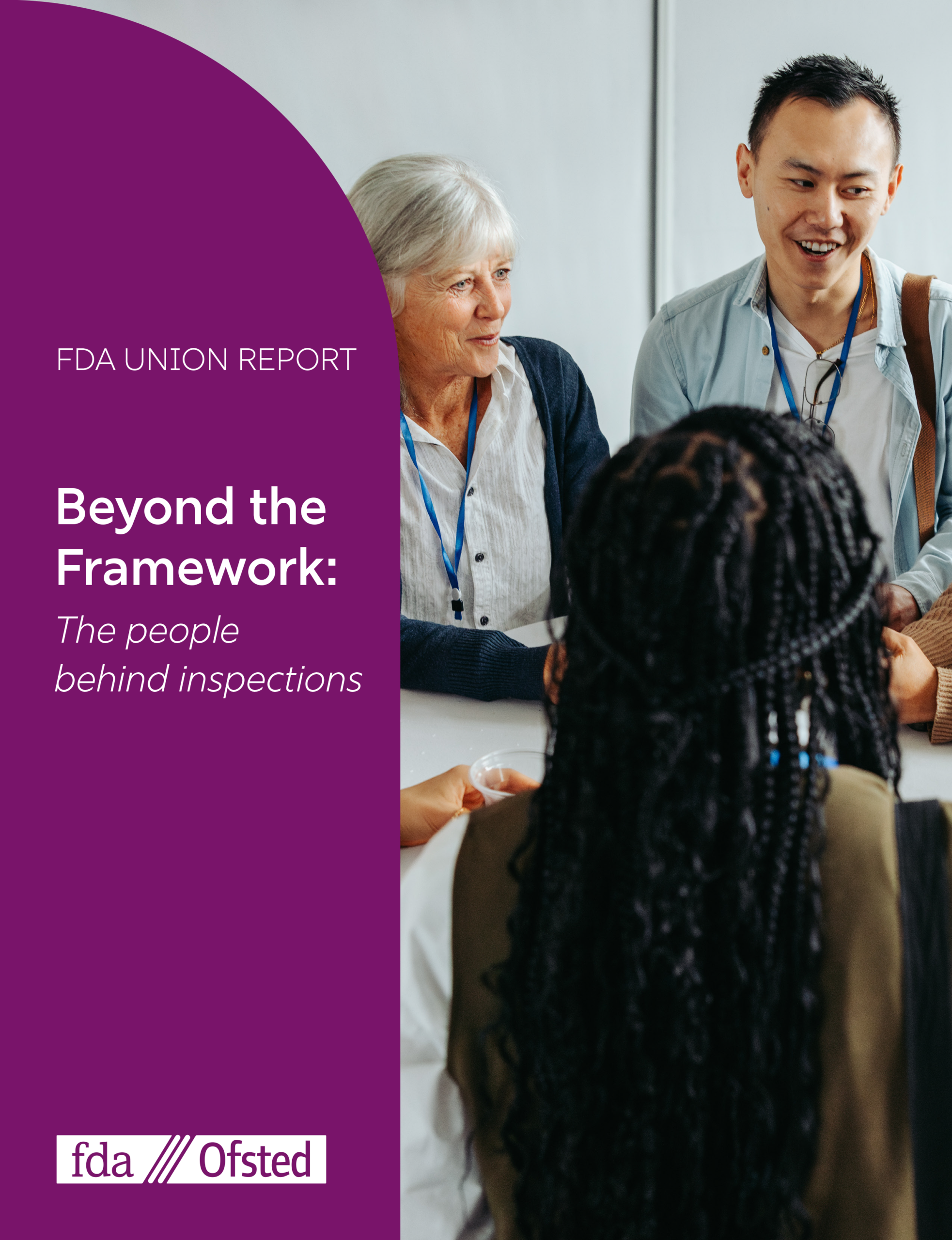Cummings’s language “demonstrates the toxic culture at the heart of the government”

FDA General Secretary Dave Penman has criticised the “vile language” that Dominic Cummings used to describe a senior civil servant, saying it “demonstrates the toxic culture at the heart of the government that could have hindered the pandemic response”.
The comments were revealed as part Cummings’s appearance in front of the UK COVID-19 Inquiry, in which messages from his time as Chief Adviser to Prime Minister Boris Johnson during the pandemic were made public for the first time.
In an appearance on Newsnight, Penman described one particular message, aimed at then Deputy Cabinet Secretary Helen MacNamara, as “abhorrent” and “misogynistic”.
Newsnight host Victoria Derbyshire put to Penman: “The message from Dominic Cummings about Helen MacNamara… one of the top civil servants in the Cabinet Office: ‘I will personally handcuff her and escort her from the building. I don’t care how it’s done, but that woman must be out of our hair. We cannot keep dealing with this horrific meltdown of the British state while dodging stilettos from that C word.’ What do you make of that?”
“I think if you look at the language he’s using, it’s clearly aimed at a woman,” the FDA General Secretary responded. “And the idea that [he’s] just terrible to everyone, I don’t think is really much of a defence. I think what it tells you is something about the culture. Government is really difficult at the best of times. You’ve got to work with people. It’s complex, it’s difficult. The civil service alone is 450,000 people, 250 organisations, never mind the NHS, local government. That is about working together.
“What was the culture in government at that point in time? Everyone was looking over their shoulder. There was the list of permanent secretaries that were to be sacked in the Sunday Telegraph weeks before that happened. That was the language being used privately. I doubt there’s a civil servant who’s the subject of those kind of WhatsApp messages who wouldn’t have known that that’s what Dominic Cummings thought of them as well. That’s not the way to run government because it’s not the way to run anything. You wouldn’t run a private business like that, and you can’t run government.”
Penman told Derbyshire that he was shocked by the “picture of chaos in No. 10” and that the evidence given by both Cummings and former Downing Street Director of Communications Lee Cain suggested “the ability of Number Ten to make decisions to run government just wasn’t there”. He also questioned Cummings’s disparaging comments about civil servants in the Cabinet Office.
“I think if you look at Dominic Cummings and everything he’s said since he was in government, he’s blaming absolutely everyone for everything and taking no responsibility himself,” Penman said. “Civil servants enter government to try and make a difference and they will accept responsibility. The Inquiry is there to try to find out what was a genuine mistake in unprecedented circumstances and what could have been foretold. Civil servants will give their evidence, most of it will be on the record, and will have to take responsibility, if there’s responsibility on their decision making but what we’ve got in the evidence we’re seeing from Cummings just now is just finger pointing. It’s what he’s done his entire time before he was in government and when he was in government.”
This was a point Penman also made in a live appearance with Ian Dale on LBC, in which he cautioned that “Cummings paints a picture of government in a particular way that’s not necessarily everyone’s view of what government was like”. While acknowledging that the “dysfunctionality” between Cummings and Johnson “fascinates everyone who’s interested in politics”, he also suggested that we shouldn’t lose sight of the purpose of the Inquiry.
“I think there’s a lot more evidence to come here on this Inquiry and obviously it’s going to be really difficult because there’s a lot of things that we’ve got to get to the bottom of… What did government get right? What did it get wrong? What was reasonable to get wrong in the circumstances? [That] is what we want the Inquiry to get to the bottom of so genuinely lessons can be learned.”
Related News
-

NICS reform can only be delivered with political leadership, says FDA
The FDA has called for strong political leadership to address the structural issues facing the Northern Ireland Civil Service, in response to the NI Audit Office report, ‘Capacity and Capability: Follow Up Report’.
-

FDA Ofsted report 2025: The people behind inspections
After a barrage of media criticism and calls for abolition, it’s been a difficult period for His Majesty’s Inspectors (HMI). Tommy Newell outlines the findings of the FDA’s recent report, revealing the reality of parents’ and educators’ views of Ofsted, and what HMIs need for an inspection system fit for the future.
-
